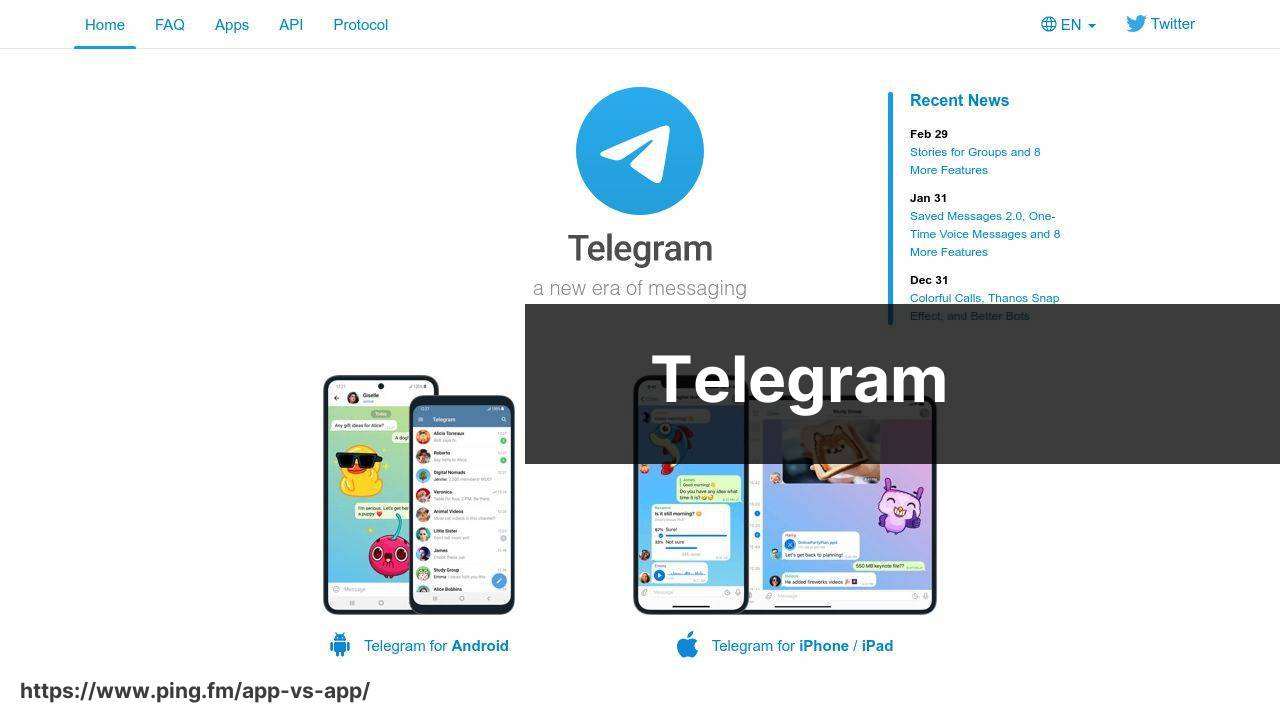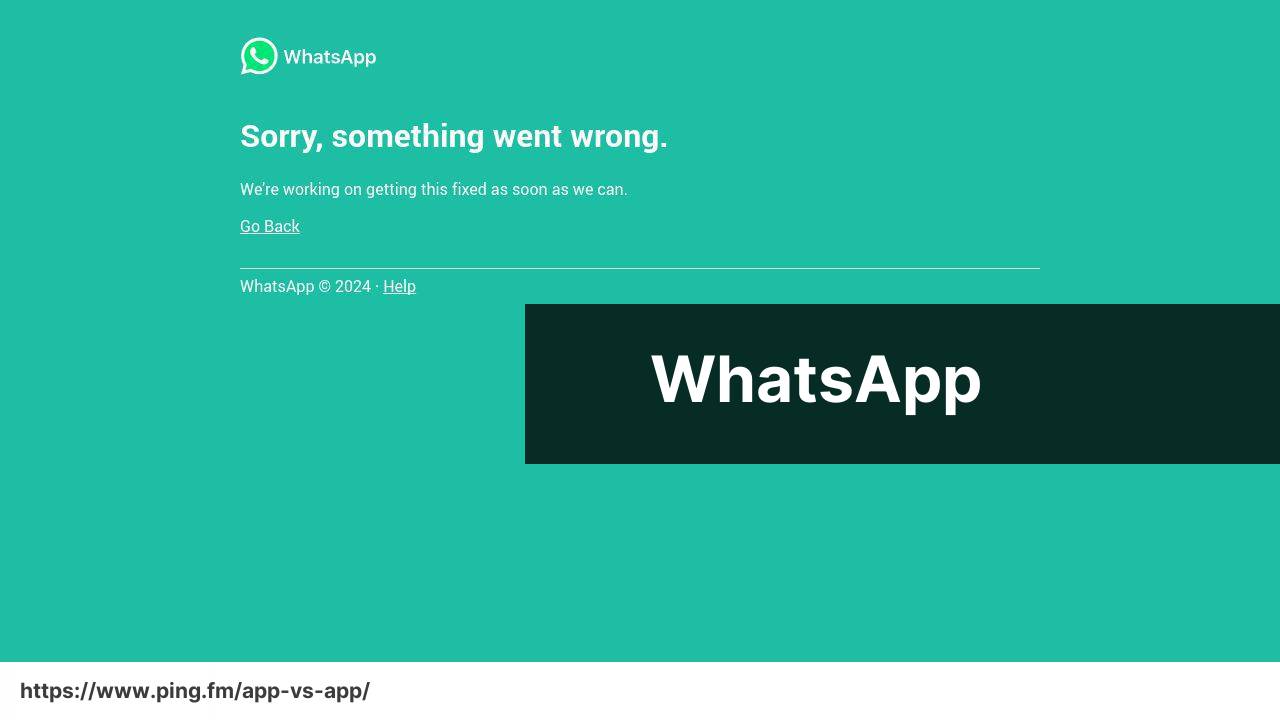Compare | Winner | |
| Usability | ||
| Security | ||
| Fun Features | ||
| Sync Across Devices | ||
| Contact Integration | ||
| Stickers and GIFS | ||
| Voice/Video Call Quality | ||
| Group Chat | ||
| International Usage | ||
| Cost | ||
| FREE / PAID | Telegram is also completely free to use as it is non-profit and funded by Pavel Durov, the founder. | WhatsApp is free to use. It does not charge its users and is monetized via Facebook-owned data analytics. |
| Conclusion | Telegram is a powerhouse 💪 with nifty privacy features 🔒, self-destruct messages 💥 and multiple device syncing. Lets you make your own stickers.🤩 | WhatsApp satisfies with a consistent, simple interface, impressive security 🔒 and direct integration to phone contacts 📱. Needs to catch up on ‘cool’ features! ✨ |
Telegram Pros & Cons
✔️ Robust Security Features 🔒
✔️ Cool Sticker Creation Feature 🎨
✔️ Multi-Device Use 🔄
✔️ Fun Self-Destruct Messages 💣
✔️ Free to Use !$
WhatsApp Pros & Cons
✔️ Simple and Consistent Interface 😍
✔️ High-Level Security 🔒
✔️ Direct Integration with Phone Contacts 📱
✔️ Free to Use 👛
✔️ Popular Worldwide 🌍
✔️ Excellent for Video Calls 📹
❌ Contact Integration Could Be Better 👥
❌ Interface May Seem Cluttered 🎭
❌ Lesser Known, Smaller User Base 👯
❌ No Video Calls for Groups 📹
❌ Lacks Status Update Feature 😔
❌ Lesser Features in Desktop Version 🖥
❌ Lacks Fancy Stickers 😔
❌ No Self-Destructive Messages 💣
❌ Needs Internet Connection to Make Calls 📞
❌ No Username, Only Phone Number 👥
❌ Limited Features for PC 🖥
Other best selling apps
Viber balances voice/video calls 📹, messages and social media aspects ⭐. Stickers and GIFS are cool but multi-device use could be simpler 🔄.
Skype brings quality voice/video calls 📞, reasonably priced global calling 🌏 and merging with Microsoft teams suggests a strong future.⏳
Line might conquer with its stickers and games 🎮, but better connection quality and an international user base are needed to compete. ⚖️
FAQ
What features set WhatsApp apart from other messaging apps?
WhatsApp has several unique features that make it a standout. It offers end-to-end encryption for security, the ability to send voice messages, location sharing, a status feature for updating your daily activities, and the option to make voice and video calls. Finally, WhatsApp can be accessed from any device which has the app installed and an internet connection.
Is it necessary to have a phone number to create a Telegram account?
Yes, a valid mobile number is required for signing up on Telegram. The app will send a verification code to this number which you will then input to finalize the registration process.
Which app, between WhatsApp and Telegram, allows more members in a group chat?
Telegram holds the edge here, as it permits up to 200,000 members in a group chat, far more than WhatsApp‘s limit of 256 members.
Can I use WhatsApp without downloading the app?
Yes, you can use WhatsApp Web without downloading the app. However, you must have the app installed on your phone and an active internet connection to use this feature. You can access it from the WhatsApp Web page.
Are my WhatsApp messages secure?
Yes. WhatsApp offers end-to-end encryption, which means that only you and the person you’re communicating with can read the messages being sent. No third party, including WhatsApp, can access this data.
Is it possible to send large files via Telegram?
Yes, Telegram allows users to send files and documents of up to 2GB each, which is considerably more than most other messaging apps offer.
What measures does Telegram undertake to ensure user’s information security?
Telegram uses a unique encryption protocol, MTProto, for secure messaging. Moreover, it has a ‘Secret Chat’ feature which offers end-to-end encryption and messages in these chats can be self-destruct after a set period if desired.
How does the ‘Status’ feature work in WhatsApp?
In WhatsApp, the ‘Status’ feature lets you share text, photos, videos, and GIFs that disappear after 24 hours. You can control who sees your Status updates through the privacy settings.
Does Telegram offer any features that enhance my privacy?
Yes. In addition to the ‘Secret Chats’ feature, Telegram also provides two-step verification for added security, and allows you to control who can see your ‘Last Seen’ status. You can also set messages to self-delete after a certain period in regular chats and groups with the recent update.
How does WhatsApp’s ‘Live Location Sharing’ operate?
Please visit the WhatsApp FAQ page for detailed information on how live location sharing works. Essentially, you can either share your live location in a chat for a specified time period, or send your current location instantly.
Can I use WhatsApp and Telegram on my desktop?
Yes, both platforms offer a web-based service as well as desktop applications. You can access them via WhatsApp Web & Telegram Desktop, respectively.
Does Telegram support voice and video calls?
Yes, Telegram supports both voice and video calls. It also enables users to have group voice chats with unlimited participants.
Do I need to pay for using WhatsApp or Telegram?
No, both WhatsApp and Telegram are free to use. However, they do require an internet connection which may incur data charges based on your service provider’s plan.
How much data does a WhatsApp call consume?
Approximately, a WhatsApp voice call consumes around 0.15 MB to 0.20 MB of data per minute. The actual consumption can vary based on various factors such as the strength of your network and the model of your device.
How can I add someone on Telegram?
To add someone on Telegram, simply tap the ‘new message’ icon, then ‘New Contact’. Enter the person’s information and tap ‘Save’. They will then appear in your contacts list.
Can I backup my WhatsApp chat history?
Yes, WhatsApp allows users to backup chat history to Google Drive for Android or iCloud for iOS. It’s recommended to do this regularly to ensure your data is safely stored.
Does Telegram have a feature similar to WhatsApp’s ‘Delete for Everyone’?
Yes, Telegram also offers a similar option. Users can delete any message they’ve sent or received from the chat for both parties, with no time limit. Additionally, they can also make messages to self-destruct after a set period.
How can I create a group in WhatsApp?
To create a group in WhatsApp, tap ‘Menu’, then ‘New Group’. Add the desired contacts and set a group subject. After this, you simply tap the check mark and your group will be created.
Can I set custom notifications for individual contacts in Telegram?
Yes, in Telegram you have the ability to set custom notifications for specific contacts. This makes it easy to distinguish who a message is from without checking your phone.
What happens when I block a contact on WhatsApp?
When you block a contact on WhatsApp, that person won’t be able to call you or send you messages, see your Last Seen or online statuses, or receive updates to your Status.
What are the key features of WhatsApp?
The main features of WhatsApp include instant messaging, voice and video calls, group chat, file sharing, status updates, and end-to-end encryption for security. WhatsApp also offers business profiles for companies to interact with customers directly.
Can both WhatsApp and Telegram be used on multiple devices simultaneously?
Yes, both WhatsApp and Telegram allow the use of their services on multiple devices. However, WhatsApp requires a primary device with an internet connection whereas Telegram uses independent cloud-based encryption, allowing for multi-device access without dependency on a primary device.
How does the Telegram app compare with WhatsApp in terms of privacy?
Telegram offers a Secret Chats feature with self-destructing messages which is not available in WhatsApp. Both apps utilize end-to-end encryption, but only Telegram provides the user the option to make their chats more private and limit who can add them to groups.
Is it possible to back up chats in both WhatsApp and Telegram?
WhatsApp allows users to back up chats to Google Drive or iCloud, while Telegram automatically saves all the data to the cloud, providing uninterrupted access to chat history from any device at any time.
How do groups in WhatsApp differ from those in Telegram?
WhatsApp allows up to 256 members in a group, while Telegram groups can have up to 200,000 members. Additionally, Telegram provides more admin controls like granular permissions, deleting specific messages, and ‘slow mode’, which are not present in WhatsApp.
Are there any file sharing limitations on WhatsApp and Telegram?
WhatsApp allows sharing files up to 100 MB, whereas Telegram capability reaches up to 2 GB per file, making Telegram a better platform for sharing larger files.
What are the supported platforms for WhatsApp and Telegram?
Both WhatsApp and Telegram are multi-platform and can be used on iOS, Android, Windows, Mac, and can also be accessed from a web browser.
How do the voice and video calling functionalities compare between WhatsApp and Telegram?
WhatsApp offers both voice and video calls, and as of October 2020, it introduced group video calls. Telegram just recently added video calling feature in 2020 with picture-in-picture mode but group video calls as of now is not supported.
Are WhatsApp and Telegram free to use?
Yes, both WhatsApp and Telegram are entirely free to use. They don’t contain ads and do not require any subscription fees.
Can deleted messages be retrieved in WhatsApp and Telegram?
WhatsApp allows both users and recipients to delete messages after sending. However, deleted messages can’t be retrieved. As for Telegram, it’s possible to delete messages from both sides in a conversation without any time limit but once deleted, they can’t be retrieved either.
Are read receipts available in both WhatsApp and Telegram?
Yes, both WhatsApp and Telegram have read receipts feature. In WhatsApp, it is represented by two blue checkmarks, while Telegram indicates it by a double-checkmark icon.
Do WhatsApp and Telegram support end-to-end encryption?
Yes, both WhatsApp and Telegram employ end-to-end encryption for messaging. This means that only you and the person you’re communicating with can read what’s sent, and nobody else, not even WhatsApp or Telegram.
How does WhatsApp Business differ from the regular WhatsApp?
WhatsApp Business is primarily designed for business messaging and offers additional features like a business profile, automated messages, and customer labels which aren’t available in standard WhatsApp.
Can I use stickers in WhatsApp and Telegram?
Yes, both WhatsApp and Telegram support sending and receiving stickers. Telegram, however, offers a more expansive collection of stickers due to its open sticker platform.
Where are the headquarters of WhatsApp and Telegram located?
WhatsApp’s headquarters are in Mountain View, California, USA, and Telegram’s operational center is currently situated in Dubai, UAE.
What are the alternatives to WhatsApp and Telegram?
How does the channel feature of Telegram compare with WhatsApp?
Unlike WhatsApp, Telegram has channels, which are used to broadcast messages to large audiences. While WhatsApp does have broadcast lists, they’re only visible to the sender and are limited to 256 recipients, whereas Telegram channels can host an unlimited audience.
How to delete my account in WhatsApp and Telegram?
To delete your WhatsApp account, go to WhatsApp Settings > Account > Delete My Account, and then follow the prompts. In case of Telegram, visit the deactivation page on their website, enter your number, and follow the prompts to delete your account.
Do both WhatsApp and Telegram need my phone number to register?
Yes, both WhatsApp and Telegram require a valid phone number to register. The phone number is part of the verification process during account setup.
Do both WhatsApp and Telegram offer voice messages?
Yes, both WhatsApp and Telegram support voice messaging, offering a convenient alternative for times when typing out a message might be inconvenient.
 ping.fm
ping.fm 

